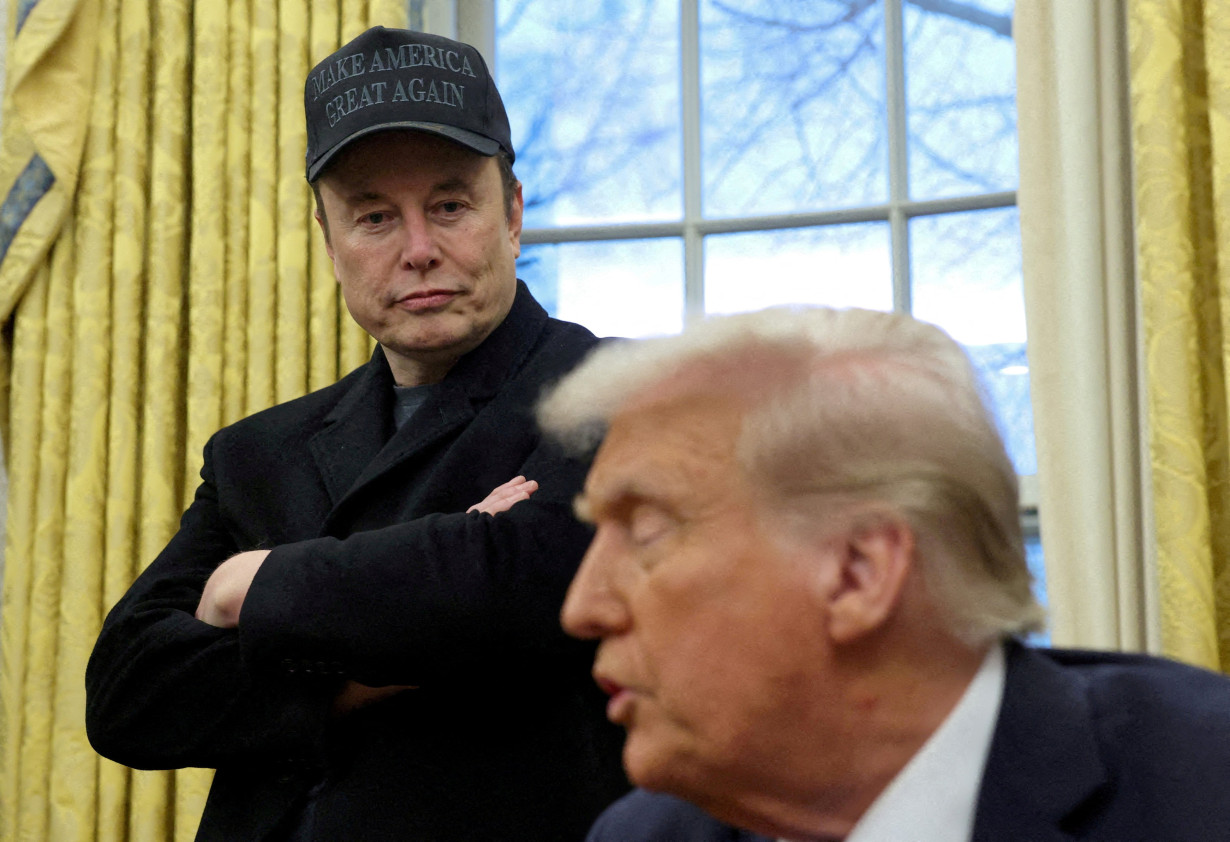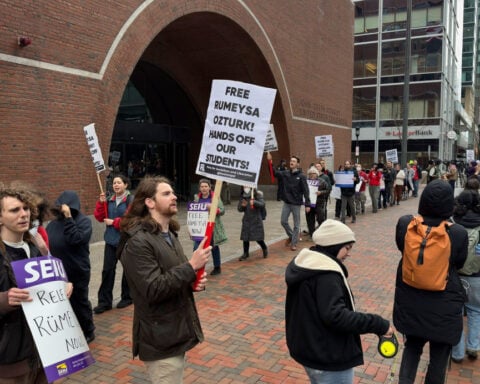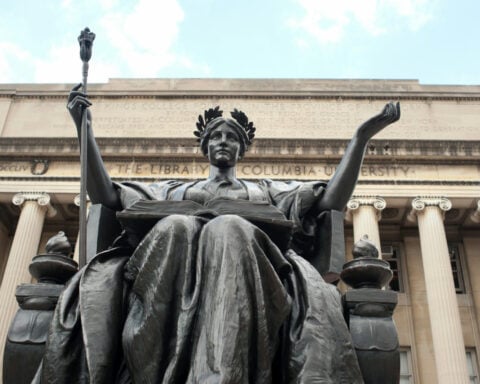By Jonathan Stempel
(Reuters) -A divided federal appeals court on Monday put on hold an injunction that blocked Elon Musk and his Department of Government Efficiency from accessing Americans' private data at the Treasury and Education departments and the Office of Personnel Management.
In a 2-1 vote, the 4th U.S. Circuit Court of Appeals stayed the March 24 preliminary injunction issued by U.S. District Judge Deborah Boardman in Greenbelt, Maryland, while the government pursues its appeal.
The Richmond, Virginia-based appeals court separately voted 8-7 against taking up the matter "en banc," meaning all active judges would decide.
A dissenting judge warned that letting DOGE access personal information belonging to millions of Americans "lets the proverbial genie out of the bottle."
The appeals court set an expedited schedule for the appeal, and will hear oral arguments on May 5.
Five labor groups led by the American Federation of Teachers and six military veterans accused President Donald Trump's administration of violating federal privacy laws by letting Musk's team review Americans' sensitive personal data.
The information includes Social Security numbers, birth dates, addresses, income, citizenship status, student loans and veterans' disability benefits.
The Treasury Department maintains systems for disbursing Social Security benefits, income tax refunds and other sums.
HACKING FEARED
Critics have said giving Musk and DOGE wide berth could lead to the government's using sensitive personal data for other purposes, such as to pursue Trump's immigration goals.
"We fear this decision will now greenlight a massive data hack that will be exploited by outsiders, transferred to private servers and fed into AI software," Randi Weingarten, president of the teachers' union, said in a statement. "We are confident our case will succeed on the merits."
The Department of Justice did not immediately respond to requests for comment.
DOGE was created to advance Trump's effort to downsize the federal government.
Musk, the world's richest person and CEO of electric car company Tesla, was hand-picked by Trump to head DOGE.
The case is separate from a lawsuit challenging DOGE's access to Social Security databases.
WEIGHING THE HARMS
Judges in Monday's 2-1 panel majority said the plaintiffs were unlikely to succeed on the merits of their case, or even show they had standing to sue.
"Each plaintiff's information is one row in various databases that are millions upon millions of rows long," wrote Circuit Judge Julius Richardson, a Trump appointee.
"The harm that might come from granting database access to an additional handful of government employees -- prone as they may be to hacks or leaks, as the plaintiffs have alleged --strikes me as different in kind, not just in degree, from the harm inflicted by reporters, detectives, and paparazzi," he added.
Republican presidents appointed six of the judges who opposed "en banc" review, while Democratic presidents appointed two.
Circuit Judge Nicole Berner, appointed by President Joe Biden, was among the seven judges, all appointed by Democrats, who wanted the entire court to take the case.
"Permitting DOGE unfettered access to the plaintiffs' personally identifiable information lets the proverbial genie out of the bottle," she wrote. "Even if they ultimately prevail, the plaintiffs will already have suffered irreparable harm."
(Reporting by Jonathan Stempel in New York; Editing by Leslie Adler and Stephen Coates)

 Trump has begun another trade war. Here's a timeline of how we got here
Trump has begun another trade war. Here's a timeline of how we got here
 Canada's leader laments lost friendship with US in town that sheltered stranded Americans after 9/11
Canada's leader laments lost friendship with US in town that sheltered stranded Americans after 9/11
 Chinese EV giant BYD's fourth-quarter profit leaps 73%
Chinese EV giant BYD's fourth-quarter profit leaps 73%
 You're an American in another land? Prepare to talk about the why and how of Trump 2.0
You're an American in another land? Prepare to talk about the why and how of Trump 2.0
 Chalk talk: Star power, top teams and No. 5 seeds headline the women's March Madness Sweet 16
Chalk talk: Star power, top teams and No. 5 seeds headline the women's March Madness Sweet 16
 Purdue returns to Sweet 16 with 76-62 win over McNeese in March Madness
Purdue returns to Sweet 16 with 76-62 win over McNeese in March Madness








